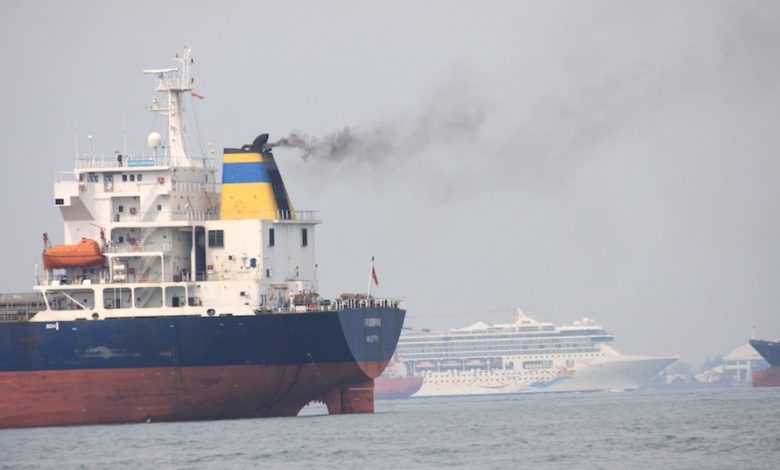Netherlands and OECD make the case for more swift adoption of longer term emissions regulations

The International Maritime Organization-convened Marine Environment Protection Committee (MEPC) meets virtually next month for what promises to be a more packed schedule than normal. The primary goal is to thrash out once and for all the short-term emission-cutting goals for shipping. Looking further ahead, however, The Netherlands and the Organisation for Economic Co-operation and Development (OECD) have sent in a joint submission highlighting the importance of starting work on mid-term measures such as carbon pricing and fuel standards.
“The lack of commercial viability is the most important market failure related to zero-carbon shipping,” the submission states, something the authors believe is caused by the fact that negative side-effects of conventional fuels, such as GHG emissions and air pollution, are not taken into account in the price of maritime transport.
“Significantly stringent carbon pricing and/or a fuel standard will resolve this market failure and make zero-carbon shipping commercially viable. Hence there is a need to commence the consideration of mid-term measures, with a priority on measures that could create a market for zero-carbon shipping, namely carbon pricing and/or fuel standards – at a significant stringency and with revenue use to support deployment,” the submission urges, pointing out that due to the long lifetime of ships, the transition away from fossil fuels needs to have started by 2030, hence the need to start discussions on mid-term measures as soon as possible.
The lack of commercial viability is the most important market failure related to zero-carbon shipping
The initial IMO strategy contains a non-exhaustive list of candidate short-, mid- and long-term measures. The mid-term measures included are: implementation programmes for the effective uptake of alternative low-carbon and zero-carbon fuels; operational efficiency measures for both new and existing ships; new/innovative emission reduction mechanisms, possibly including market-based measures (MBMs); technical cooperation and capacity-building activities; and exchange of best practices.
This raises the question which of these measures, or which combination of measures, would be most effective at reducing GHG emissions from ships and in which sequence should they be implemented?
The authors of the submission suggest a market for low-carbon shipping could be created by internalising the negative externalities of high-carbon shipping, either via carbon pricing or regulation such as fuel standards. There are various ways in which carbon could be priced, including via a carbon tax or levy and emissions trading schemes. An alternative approach could be to regulate fuels and their carbon content via fuel standards. Fuel standards and carbon pricing could also be integrated with each other, via a proposed trading scheme that covers ships that over-comply and under-comply with the fuel standards. In the case of a low carbon price, the authors suggest a complementary measures – like a fuel standard – are necessary in order to achieve an effective transition towards zero-carbon shipping. Both measures would require application of lifecycle assessment of emissions.
The submission also took a swipe at LNG as a fuel. In gt, terms more than a quarter of today’s orderbook at yards around the world are set to be LNG-ready.
“Transition pathways can become locked-in because of certain choices early on in the process that make transition to zero-carbon shipping more difficult,” the submission posits, adding: “Examples of such choices that lead to lock-in into high-carbon pathways could be to focus on transition fuels that cannot evolve into zero-GHG fuels, such as liquefied natural gas.”
Shipping’s urgent need to enact more mid-term regulations was made clear in a report from the International Energy Agency yesterday, which pointed out how the industry is on track to fall short of hitting zero emissions by 2050.
The 76th gathering of MEPC is set to run from June 16 to June 20. Splash will be bringing readers regular reports from the event.

Perhaps more shipping of raw materials and less shipping of finished products. In house control of production emissions, also easier to ship raw materials in smaller wind/solar or one day hydrogen powered vessels.